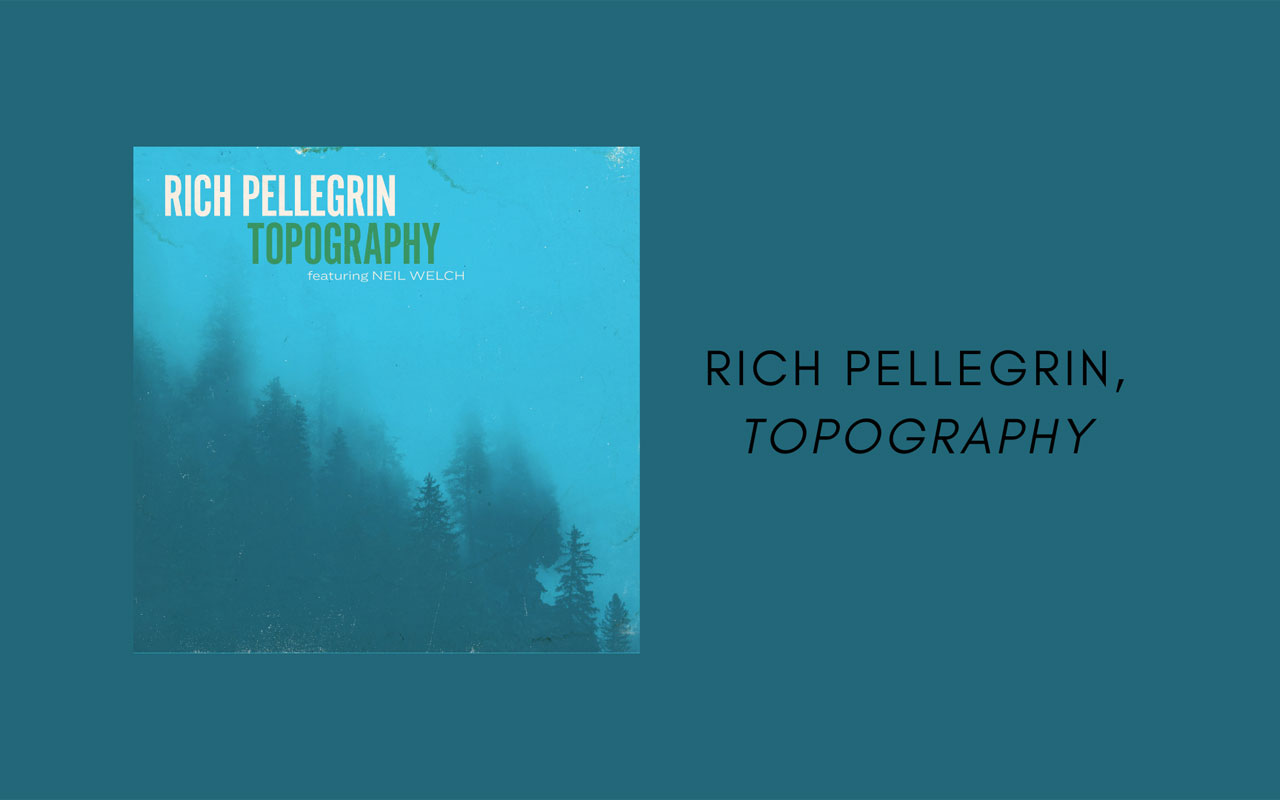
Slow & Steady Records, October 2024
Beauty in music is often derived from an authentic approach and its ability to connect musician to audience. Successfully adding the elements of connection to place, whether it be cerebral or environmental, is a beauty that is even more difficult to capture.
With this improvisational yet thoughtful approach, Rich Pellegrin’s latest release, Topography, invites listeners on an introspective journey through the natural and mysterious beauty of the Pacific Northwest. Using compositions and improvisational dialogue between piano and saxophone as its guide, Topography offers a connection between sound and place, eliciting vivid images of serene landscapes and a calm sense of wonder.
Pellegrin’s artistry is distinguished by its remarkable intensity, heartfelt conviction, and clear expression that resonates deeply with listeners. His unique sound blends a percussive yet rich tonal quality that captivates audiences. As a dedicated musician, scholar, and educator, Pellegrin serves as a professor of music at the University of Florida, although he lives in the Seattle area when he’s not teaching in Gainesville, FL. With his roles as pianist, composer, and bandleader, Pellegrin has made a significant mark on the jazz landscape, releasing five albums under Origin Records. His latest work, Topography, invites listeners to explore the intricate layers of his musical landscape.
Recorded at Langley United Methodist Church, a location that has inspired and produced his previous albums Passage and Solitude, Topography captures the serene essence of its setting. With Pellegrin on a 1915 Everett Concert Grand and accompanied by Neil Welch on saxophone, together, they craft an improvised narrative that reflects the haunting beauty and complexity of its environment.
The album’s structure is rooted in nature, “Stream,” “Clearing,” “Marsh,” and so on. Each piece immerses one in a unique soundscape that creates an expressive interpretation of the terrain. “Treeline” opens the album with sparse yet deliberate piano notes, creating space and elevation, while Welch’s breathy saxophone mirrors the wind stirring through evergreens.
The journey continues with “Ravine,” where Pellegrin’s low-end piano reverberations shape the depth and hollowness of the landscape, and trilling saxophone lines mimic the quiet calls of wildlife, adding contrast and texture from above. In “Butte,” upper-register saxophone explorations conjure misty wooded highlands and highlight Pellegrin’s compositional talent in using silence as an instrument, amplifying the meditative atmosphere.
The album moves in and out of darker, more enigmatic spaces with tracks like “Cave,” which features a deep, resonant piano that conjures the solemn stillness of underground spaces, and “Marsh,” which brings a fusion of earthy saxophone tones and piano lines that capture the ebb and flow of nature’s rhythm.
Topography is a masterful celebration of connection—between musicians, environment, and audience. Pellegrin’s improvisational compositions and talent complement Welch’s earthy, textural approach, resulting in a soundscape that mirrors the spirit of the PNW and offers listeners a meditative escape within the rhythms and beauty of the natural world.